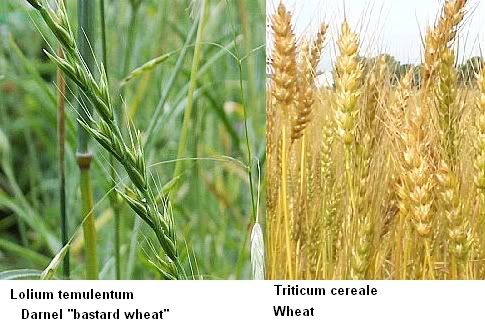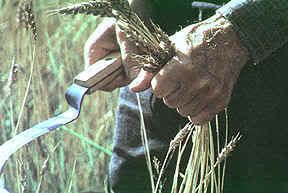Do you know why some of you have had very bad experiences in church? In the coming days, I want to explain some things from Matthew 13:
24 Another parable He put forth to them, saying: "The kingdom of heaven is like a man who sowed good seed in his field;
25 but while men slept, his enemy came and sowed tares among the wheat and went his way.
26 But when the grain had sprouted and produced a crop, then the tares also appeared.
27 So the servants of the owner came and said to him, 'Sir, did you not sow good seed in your field? How then does it have tares?'
28 He said to them, 'An enemy has done this.' The servants said to him, 'Do you want us then to go and gather them up?'
29 But he said, 'No, lest while you gather up the tares you also uproot the wheat with them.
30 Let both grow together until the harvest, and at the time of harvest I will say to the reapers, "First gather together the tares and bind them in bundles to burn them, but gather the wheat into my barn." ' "
24 Another parable He put forth to them, saying: "The kingdom of heaven is like a man who sowed good seed in his field;
25 but while men slept, his enemy came and sowed tares among the wheat and went his way.
26 But when the grain had sprouted and produced a crop, then the tares also appeared.
27 So the servants of the owner came and said to him, 'Sir, did you not sow good seed in your field? How then does it have tares?'
28 He said to them, 'An enemy has done this.' The servants said to him, 'Do you want us then to go and gather them up?'
29 But he said, 'No, lest while you gather up the tares you also uproot the wheat with them.
30 Let both grow together until the harvest, and at the time of harvest I will say to the reapers, "First gather together the tares and bind them in bundles to burn them, but gather the wheat into my barn." ' "











